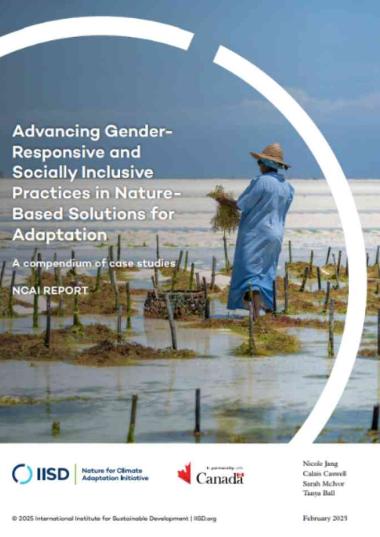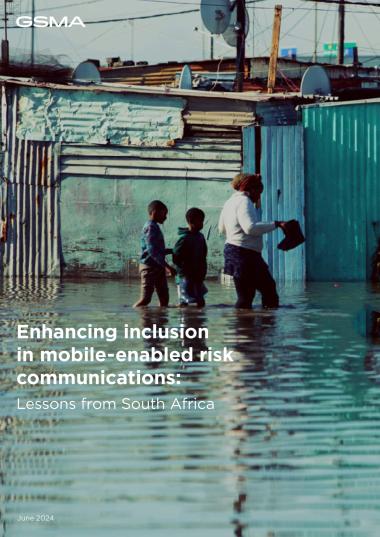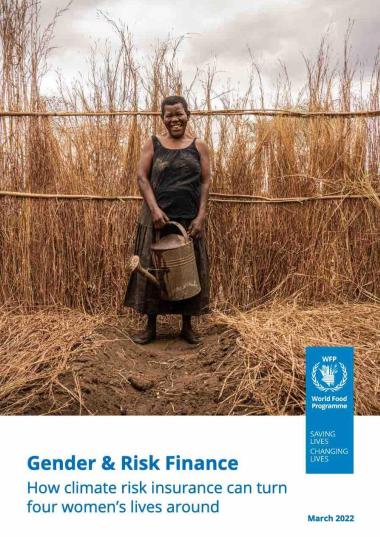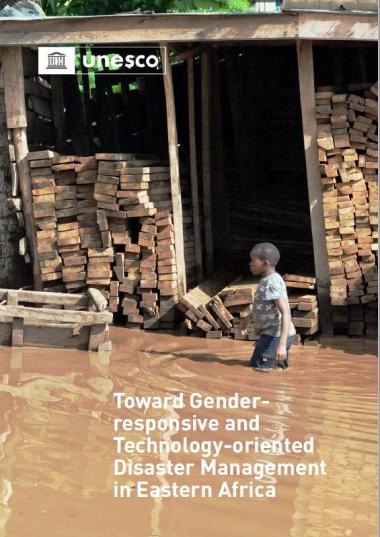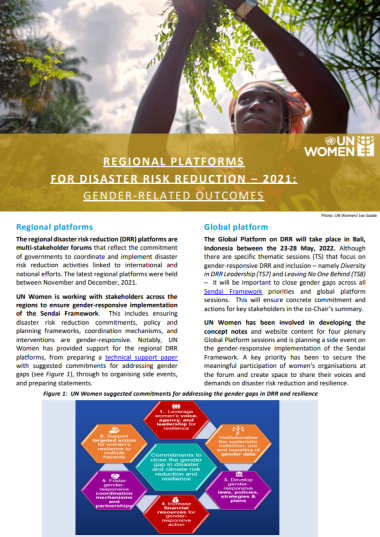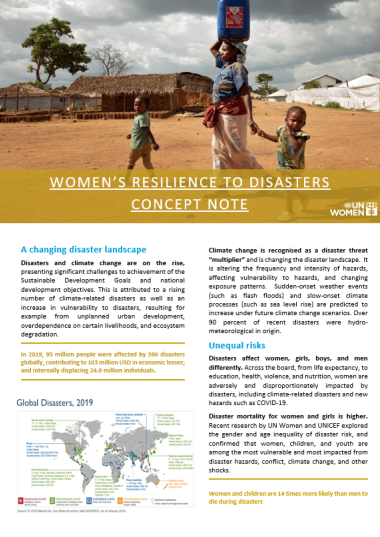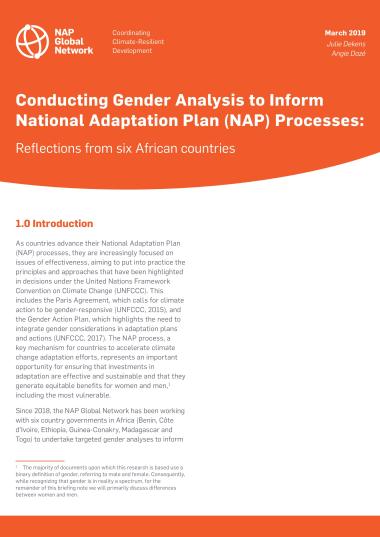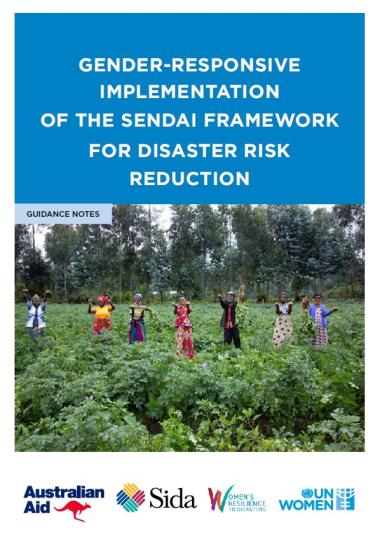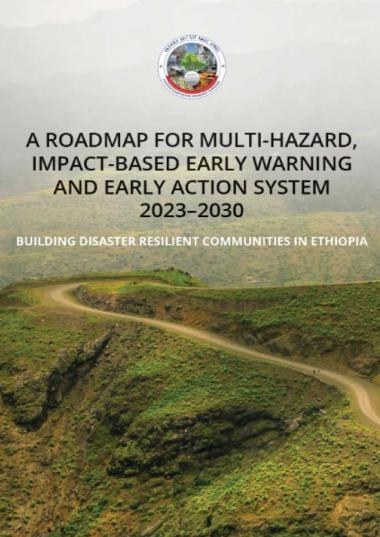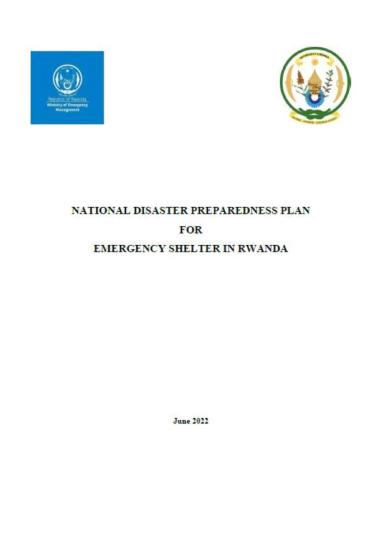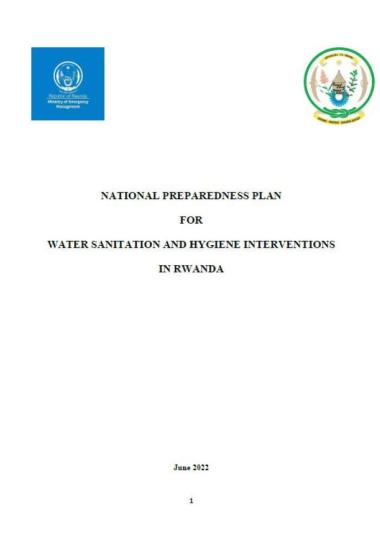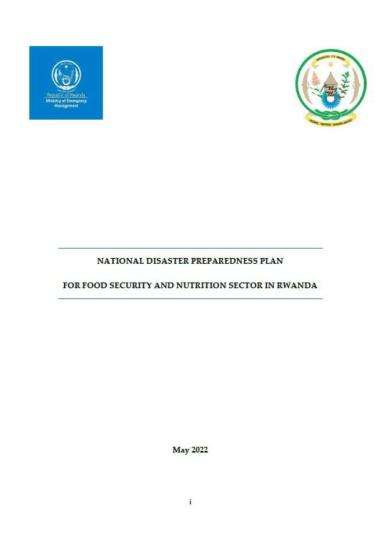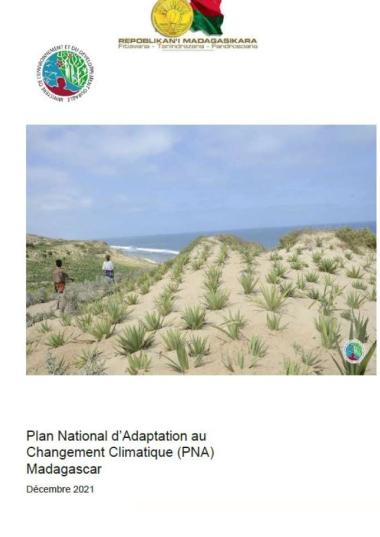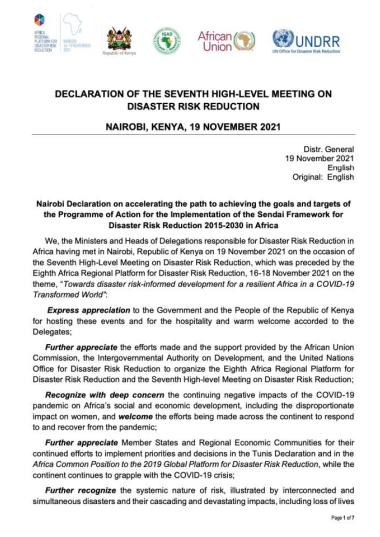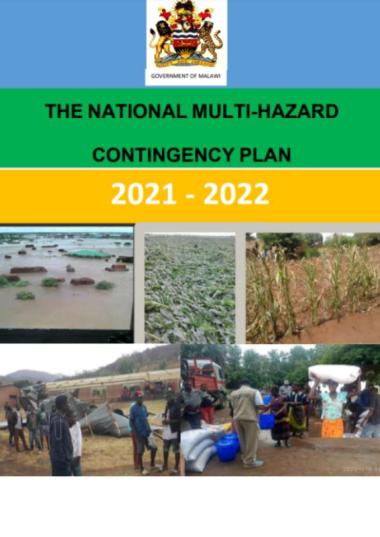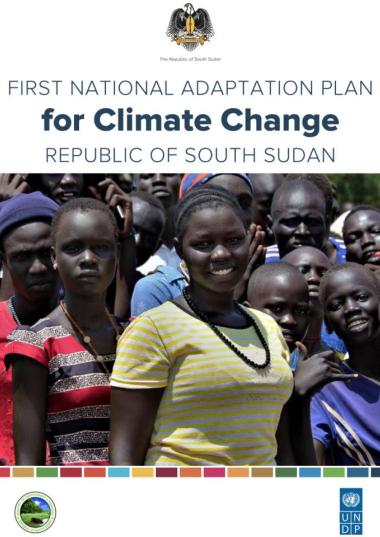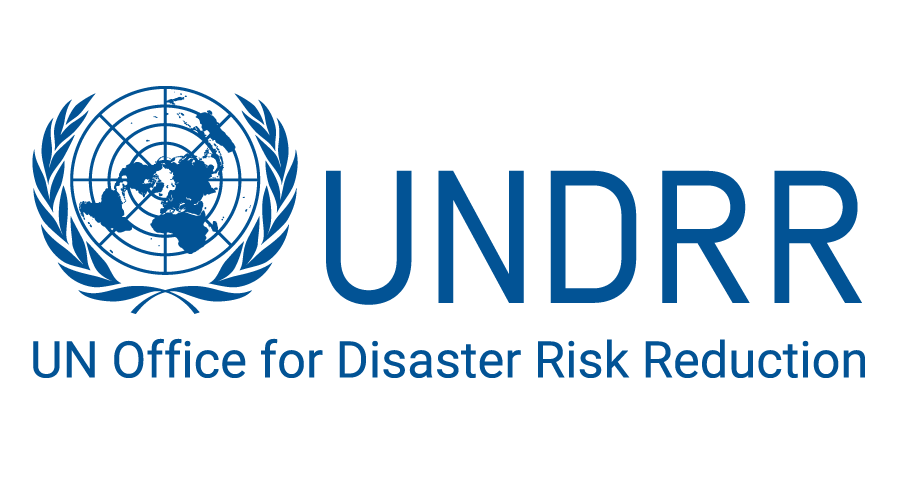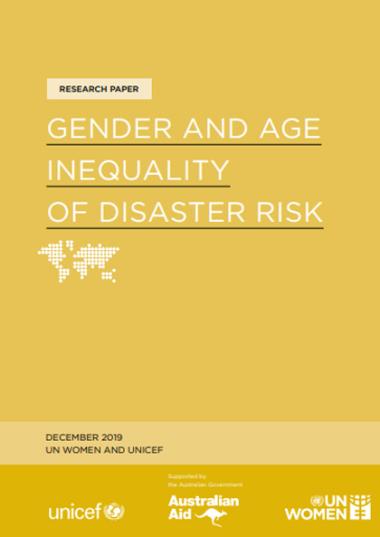
The Eastern and Southern Africa region is highly prone to the impact of hazards, including floods, droughts, cyclones, earthquakes, landslides and epidemics.
It is a highly sensitive region with limited adaptive capacity, meaning its impacts and costs are felt greatly across people’s lives. Because of its heavy reliance on agriculture and with over 65% of the population living in rural areas that become inaccessible when storms and floods hit, longer-term losses and recovery is extremely challenging. Furthermore, there is little access to insurance to claim on damages or social protection systems of support.
In particular, studies have shown the specific impacts of disasters on women and girls that are rooted in gender inequality in the region, including higher school drop-out rates among girls following reductions in rainfall, rise in child marriages after drought season, and increased domestic labour among girls and increased reports of sexual and GBV following a disaster. Women and marginalized groups have less access to information, resources, finance, technologies and decision-making, leaving them largely excluded from prevention and preparedness processes, which not only increases their vulnerability and exposure but also causes greater challenges in coping and rebuilding after a crisis.
UN Women’s work on DRR in the region mainly involves advocacy, production of knowledge and tools to strengthen and support gender mainstreaming for DRR and resilience frameworks and increasing gender quality and women’s leadership in disaster risk reduction normative and coordination processes. This also includes training on gender analysis skills and the collection and use of sex, age and disability disaggregated data (SADDD), and promoting the participation and leadership of women, girls and other marginalised groups.
